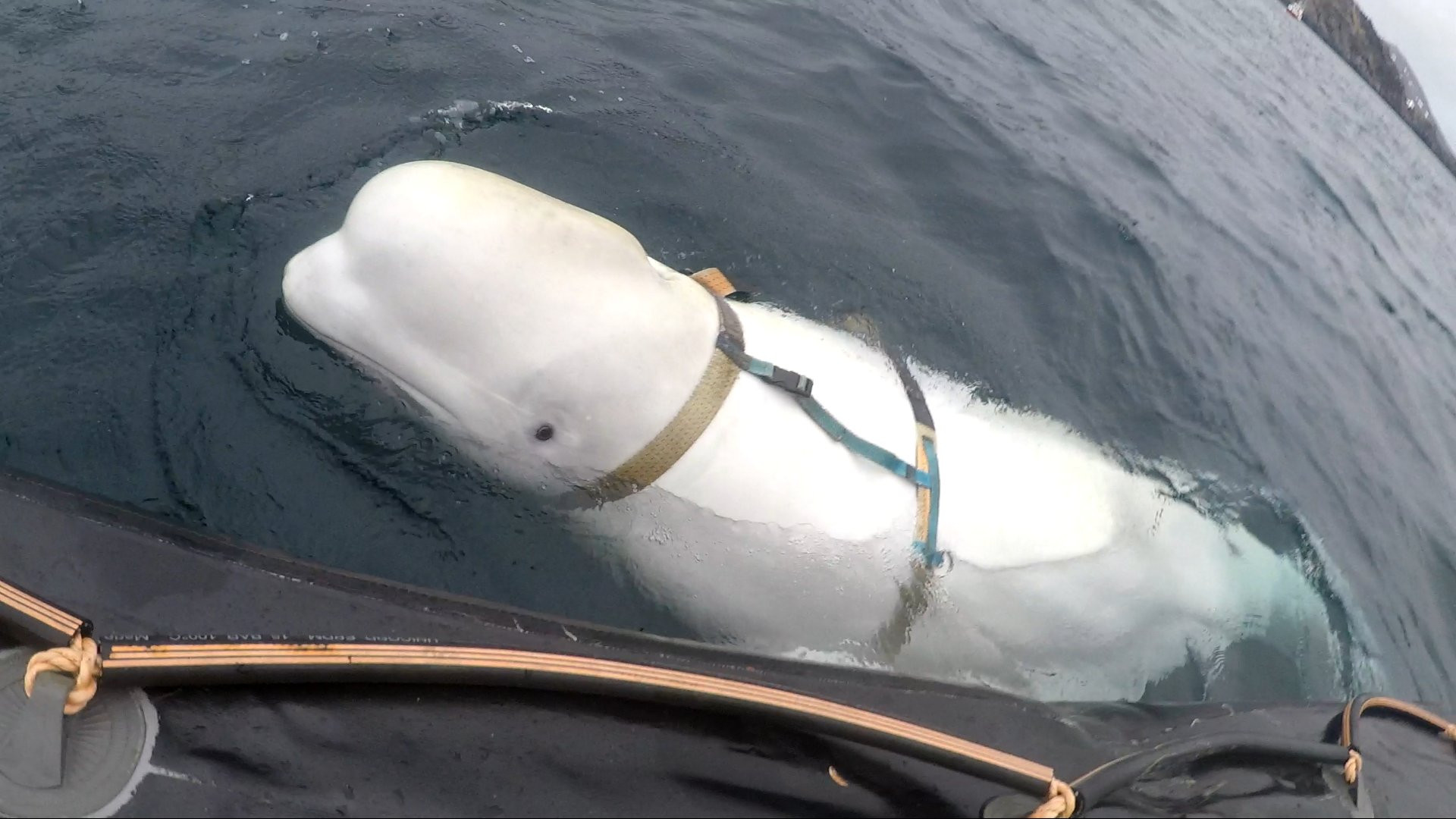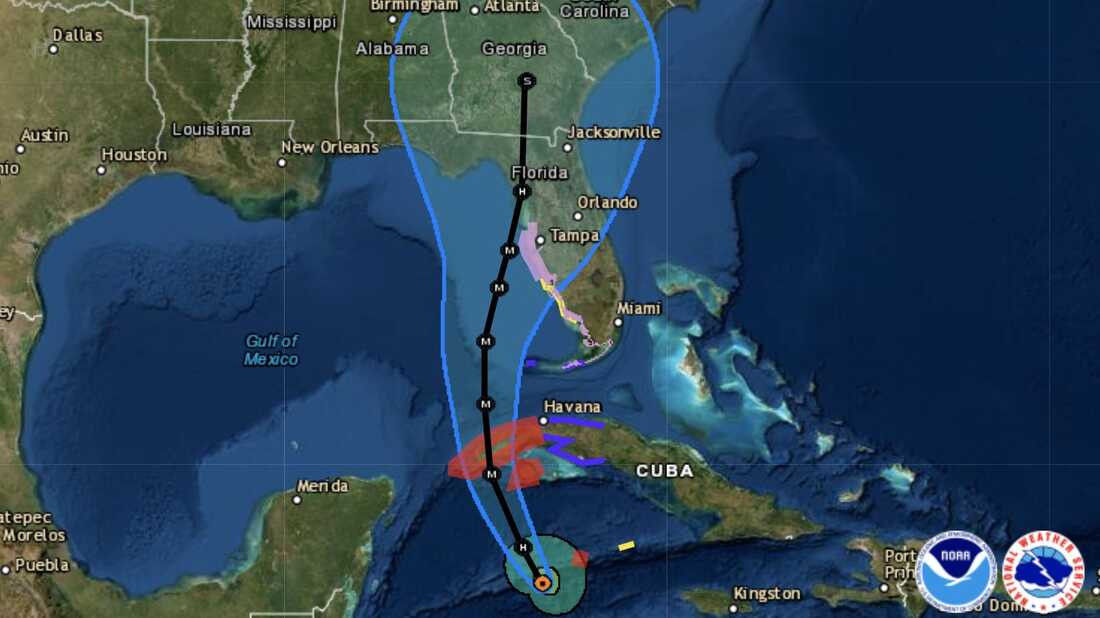A white beluga whale named “Hvaldimir,” first spotted in Norway not far from Russian waters with a harness that ignited rumors he may be a Moscow spy, has been found dead. The Norwegian public broadcaster NRK reported that the whale carcass was found floating at the Risavika Bay in southern Norway Saturday by a father and son who were fishing.
The beluga, named by combining the Norwegian word for whale — hval — and Russian President Putin’s first name Vladimir, was lifted out of the water with a crane and taken to a nearby harbor where experts will examine it. “Unfortunately, we found Hvaldimir floating in the sea. He has passed away but it’s not immediately clear what the cause of death is,” marine biologist Sebastian Strand told NRK, adding that no major external injuries were visible on the animal.
Strand, who has monitored Hvaldimir’s adventures for the past three years on behalf of the Norway-based Marine Mind non-profit organization, said he was deeply affected by the whale’s sudden death. “It’s absolutely horrible,” Strand said. “He was apparently in good condition as of (Friday). So we just have to figure out what might have happened here.”
That sparked allegations that the beluga was “a spy whale.” Experts said the Russian navy is known to have trained whales for military purposes. Over the years, the beluga was seen in several Norwegian coastal towns and it quickly became clear that he was very tame and enjoyed playing with people, NRK said. NGO Marine Mind said on its site that Hvaldimir was very interested in people and responded to hand signals.
“Based on these observations, it appeared as if Hvaldimir arrived in Norway by crossing over from Russian waters, where it is presumed he was held in captivity,” it said. Norwegian media have speculated whether Hvaldimir could have been used as “a therapy whale” of some sort in Russia.
Hvaldimir's Legacy: More Than Just a 'Spy Whale'
Despite the initial speculation about his purpose, Hvaldimir became more than just a suspected spy. He captured the hearts of Norwegians and gained international attention. People were drawn to his playful nature and his apparent comfort around humans. He was often seen interacting with people, playing with objects, and even seeking out human contact. This behavior solidified the belief that Hvaldimir had been held in captivity, most likely by the Russian navy, before being released or escaping into the Norwegian waters.
Hvaldimir's story highlights the complex relationship between humans and wildlife. It also raised questions about the ethics of using animals for military purposes, particularly in a time of heightened geopolitical tension. Organizations like Marine Mind, dedicated to Hvaldimir’s care, saw his presence as a chance to raise awareness about ocean conservation and the need to protect vulnerable marine species.
The Search for Answers
The cause of Hvaldimir's death is still unknown. Experts will conduct a necropsy to determine whether it was due to natural causes, a possible interaction with a ship, or another factor. This will be crucial in understanding Hvaldimir’s life and his sudden demise.
Hvaldimir's passing has left a void in Norway and beyond. He was a reminder of the wonder and mystery of the natural world, and his story has captured the imagination of people worldwide. His legacy will likely continue to inspire discussions about animal welfare, conservation, and the delicate balance between humans and the creatures we share our planet with.
A Whale of a Story: A Legacy of Hope and Curiosity
Hvaldimir’s story resonates on multiple levels. It’s a tale of a fascinating creature, a possible spy, a beloved local celebrity, and a reminder of the intricate relationships between humans and animals. He captured the hearts of many who saw him as an ambassador for ocean conservation. While the circumstances surrounding his death are still being investigated, Hvaldimir’s legacy lives on. His story reminds us of the importance of protecting our oceans and the creatures that inhabit them. Hvaldimir’s journey may have been cut short, but his impact on our understanding of the natural world will undoubtedly continue to inspire for years to come.

















